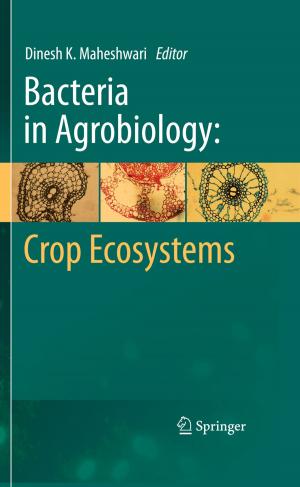Recent Advances in the Processing of Wood-Plastic Composites
Nonfiction, Science & Nature, Technology, Material Science, Manufacturing| Author: | Jin Kuk Kim, Kaushik Pal | ISBN: | 9783642148774 |
| Publisher: | Springer Berlin Heidelberg | Publication: | December 16, 2010 |
| Imprint: | Springer | Language: | English |
| Author: | Jin Kuk Kim, Kaushik Pal |
| ISBN: | 9783642148774 |
| Publisher: | Springer Berlin Heidelberg |
| Publication: | December 16, 2010 |
| Imprint: | Springer |
| Language: | English |
Wood-plastic composite (WPC) is a non-recyclable composite material lumber or timber made of recycled plastic and wood wastes which has become one of the most dynamic sectors of the plastics industry in this decade. It is used in numerous applications, such as, outdoor deck floors, railings, fences, landscaping timbers, park benches, window and door frames. This book starts with a brief glimpse at the basic structures and properties of WPCs. Aspects such as surface treatment, machinery used and testing types of WPCs are also covered. The following chapters of the book give a view of foam technology, flame retardant properties and colour retardant properties of WPCs. The way morphology affects or controls the physical and mechanical behaviours of the finished materials is discussed. Finally, the authors give an overview of the applications of wood-plastic composites in daily life. The book may serve as a source book for scientists wishing to work in this field.
Wood-plastic composite (WPC) is a non-recyclable composite material lumber or timber made of recycled plastic and wood wastes which has become one of the most dynamic sectors of the plastics industry in this decade. It is used in numerous applications, such as, outdoor deck floors, railings, fences, landscaping timbers, park benches, window and door frames. This book starts with a brief glimpse at the basic structures and properties of WPCs. Aspects such as surface treatment, machinery used and testing types of WPCs are also covered. The following chapters of the book give a view of foam technology, flame retardant properties and colour retardant properties of WPCs. The way morphology affects or controls the physical and mechanical behaviours of the finished materials is discussed. Finally, the authors give an overview of the applications of wood-plastic composites in daily life. The book may serve as a source book for scientists wishing to work in this field.















